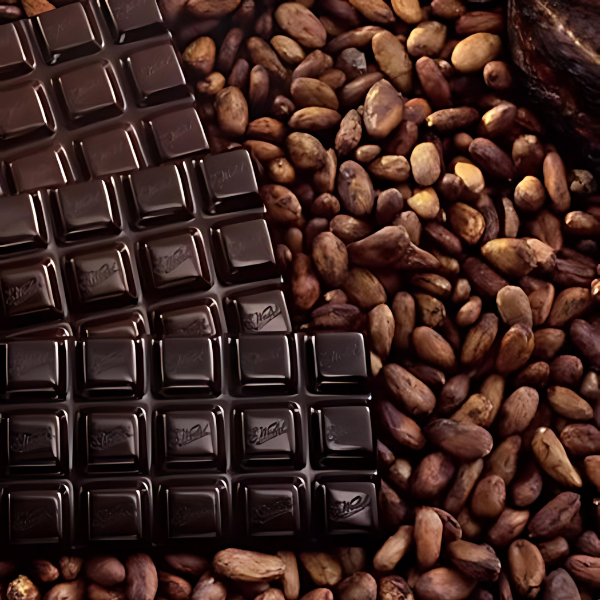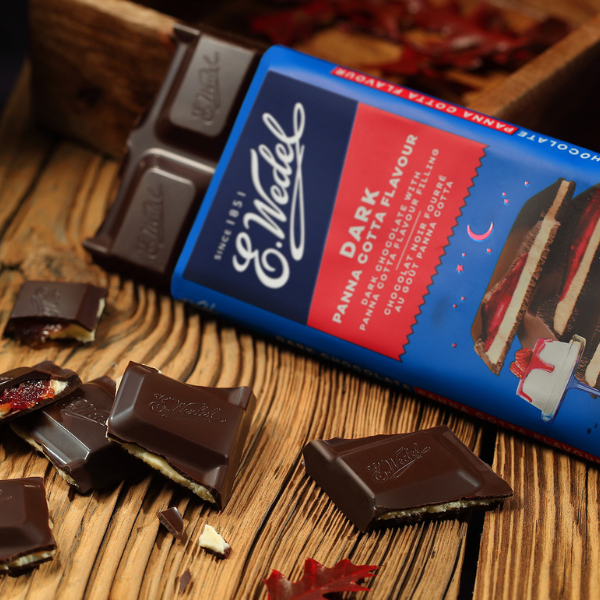The chocolate consumption habits of generation Z and Alpha: a new era in the sweet industry
Chocolate, long cherished as a universal delight, is evolving in its appeal and consumption patterns, especially among younger generations. Generation Z (born between 1997 and 2012) and Generation Alpha (born after 2012) are reshaping the chocolate market with their distinct preferences, behaviors, and values.
These generations have grown up in an era marked by rapid technological advancements, increasing awareness of global issues, and a strong focus on health and sustainability. As a result, their chocolate consumption habits are different from those of previous generations, influencing the strategies of chocolate brands worldwide.
Understanding the new consumer
To fully grasp the chocolate consumption habits of generation Z and Alpha, it's important to first understand their characteristics and what drives their purchasing decisions.
Generation Z is often described as the first truly digital generation. Having grown up with smartphones, social media, and instant access to information, they are tech-savvy, socially conscious, and value experiences over material goods. They are highly informed consumers who tend to prioritize quality, brand values, and ethical practices when making purchases.
Generation Alpha, on the other hand, is still in its early stages of development, with the oldest members being just around 12 years old as of 2024. However, they are already demonstrating a strong inclination towards technology and are expected to be even more digitally connected and health-conscious than generation Z. Their preferences are likely to be heavily influenced by their upbringing in a world where environmental concerns, wellness, and social justice are increasingly emphasized.
 The shift towards health and wellness
The shift towards health and wellness
One of the most significant trends in the chocolate consumption habits of these younger generations is their heightened focus on health and wellness. Unlike previous generations, who often indulged in chocolate as a guilty pleasure, Gen Z and Alpha are more likely to seek out healthier options that align with their lifestyle choices.
For these consumers, the concept of "healthier chocolate" goes beyond simply reducing sugar content. They are interested in products that offer additional benefits, such as high cocoa content, organic ingredients, and functional additives like protein, vitamins, or adaptogens. This has led to a surge in demand for dark chocolate, which is perceived as a more sophisticated and health-conscious choice compared to milk chocolate.
The role of sustainability and ethics
Another key factor influencing chocolate consumption among generation Z and Alpha is their strong commitment to sustainability and ethical practices. These generations are more aware than ever of the environmental and social impact of their purchases, and they expect the brands they support to share their values.
Fair trade, organic certification, and transparent supply chains are becoming increasingly important in the chocolate industry as a result. Consumers from these generations are more likely to choose chocolate brands that support fair wages for farmers, environmentally friendly farming practices, and efforts to reduce carbon footprints.
In addition, Gen Z and Alpha are highly concerned about issues such as child labor in the cocoa industry and deforestation caused by cocoa farming. As a result, they prefer to buy from companies that actively work to combat these issues. Brands that engage in corporate social responsibility (CSR) initiatives, such as supporting education for cocoa farmers' children or reforestation projects, are particularly appealing to these consumers.
The experience economy and personalization
Another defining characteristic of generation Z and Alpha is their preference for experiences over material  possessions. This trend is also reflected in their approach to chocolate consumption. For these consumers, chocolate is not just a treat; it is an experience to be savored, shared, and enjoyed in a meaningful way.
possessions. This trend is also reflected in their approach to chocolate consumption. For these consumers, chocolate is not just a treat; it is an experience to be savored, shared, and enjoyed in a meaningful way.
This has led to the rise of experiential chocolate products, such as artisanal chocolates, limited-edition flavors, and interactive chocolate experiences like workshops or tastings. These products allow consumers to connect with the brand on a deeper level and create memorable experiences that go beyond just eating chocolate.
Personalization is another key trend among these generations. Gen Z and Alpha consumers appreciate products that are tailored to their individual tastes and preferences. This has led to the popularity of customizable chocolate products, where consumers can choose their own flavors, toppings, and packaging. Online platforms that allow customers to create their own chocolate bars or gift boxes are particularly popular, as they combine the desire for personalization with the convenience of e-commerce. As an example, have a look at the e-shop of E.Wedel’s Pijalnie Czekolady, where you can order a personalised traditional Torcik Wedlowski.
The influence of social media and digital culture
Social media plays a pivotal role in the lives of generation Z and Alpha, influencing their tastes, preferences, and buying behaviors. Platforms like Instagram, TikTok, and YouTube are not just entertainment sources but also key channels for discovering new products, trends, and brands.
For these consumers, the visual appeal of chocolate is almost as important as its taste. This has given rise to the "Instagrammable" food trend, where the aesthetic presentation of a product is crucial for its success. Chocolate brands are increasingly focusing on creating visually stunning products that are designed to be shared on social media, from intricate chocolate sculptures to colorful and creatively packaged bars.
Influencers also play a significant role in shaping the chocolate consumption habits of these generations. Endorsements from popular influencers can quickly boost a brand's visibility and credibility among younger consumers. Chocolate brands are leveraging this by collaborating with influencers to create exclusive products, launch social media campaigns, or simply share the brand's story with a wider audience.
In addition to social media, digital culture has fostered a desire for instant gratification among Gen Z and Alpha. This is reflected in their shopping habits, where convenience and speed are highly valued. Online shopping, subscription services, and direct-to-consumer models are becoming increasingly popular for purchasing chocolate, allowing these consumers to enjoy their favorite treats without leaving the comfort of their homes.

The future of chocolate: innovations and trends
As the influence of generation Z and Alpha continues to grow, the chocolate industry is likely to see further innovation and adaptation to meet their unique preferences. Here are some trends and developments that could shape the future of chocolate consumption:
-
Functional and fortified chocolates: As health-consciousness grows, there will be an increased demand for chocolates that offer functional benefits, such as enhanced mood, improved focus, or boosted immunity. Chocolates infused with adaptogens, nootropics, or probiotics are likely to become more common.
-
Sustainable packaging: In response to the environmental concerns of younger consumers, chocolate brands will likely adopt more sustainable packaging solutions, such as biodegradable wrappers or reusable containers. The reduction of plastic waste will be a significant focus.
-
Ethical sourcing and transparency: The demand for ethically sourced cocoa and transparency in supply chains will continue to rise. Blockchain technology could play a role in providing consumers with detailed information about the origins of their chocolate, ensuring that it meets their ethical standards.
-
 Technological integration: Augmented reality (AR) and virtual reality (VR) experiences could become part of the chocolate-buying process, offering consumers an immersive experience that combines the digital and physical worlds. Imagine virtually touring the Chocolate Factory E.Wedel or experiencing a tasting session from home.
Technological integration: Augmented reality (AR) and virtual reality (VR) experiences could become part of the chocolate-buying process, offering consumers an immersive experience that combines the digital and physical worlds. Imagine virtually touring the Chocolate Factory E.Wedel or experiencing a tasting session from home. -
Cultural and flavor diversity: As the world becomes more interconnected, there will be a growing interest in chocolates that incorporate diverse cultural flavors and ingredients. From exotic spices to traditional recipes, the global palette will play a significant role in shaping new chocolate offerings.
-
Increased focus on mental health: With rising awareness around mental health, chocolate brands may explore products that cater to emotional well-being. This could include chocolates designed to reduce stress, enhance relaxation, or promote happiness, aligning with the self-care movement.
Generation Z and Alpha are not just reshaping the chocolate industry; they are setting new standards for what consumers expect from their favorite treats. Their focus on health, sustainability, ethics, and experiences is driving innovation and change, pushing chocolate brands to rethink their strategies and product offerings.
As these generations continue to mature and their purchasing power increases, their influence on the market will only grow stronger. Chocolate brands that successfully align with the values and preferences of Gen Z and Alpha are likely to thrive, while those that fail to adapt may find themselves struggling to keep up in an increasingly competitive landscape. The future of chocolate is undoubtedly sweet, but it is also more complex, nuanced, and dynamic than ever before.
